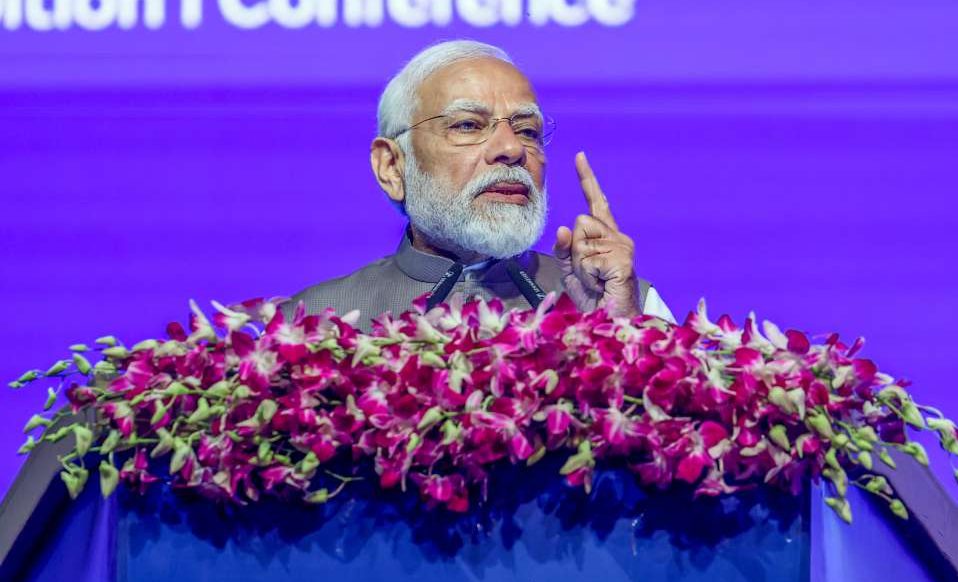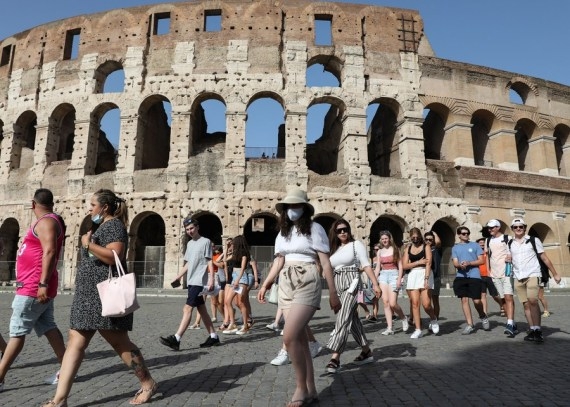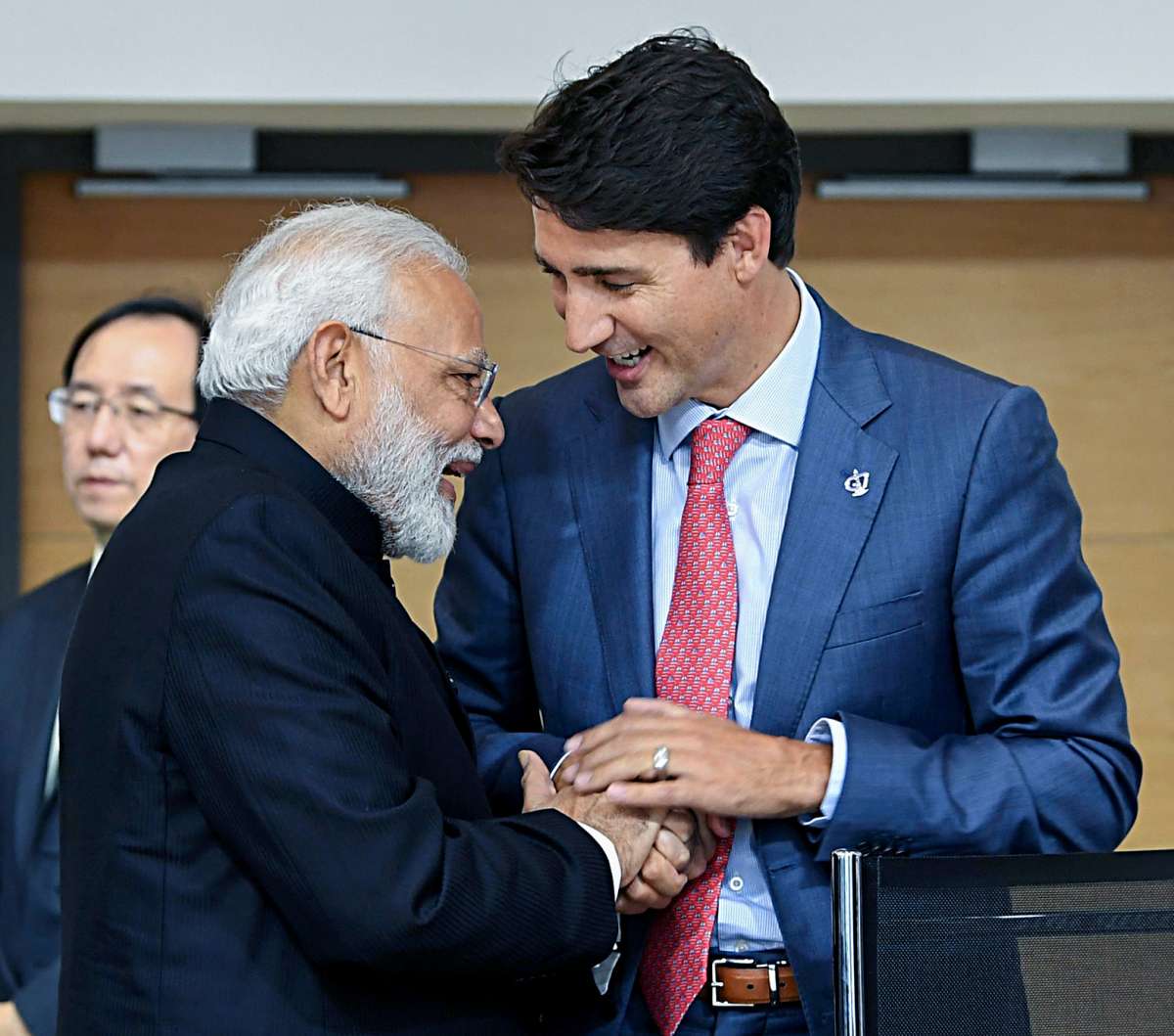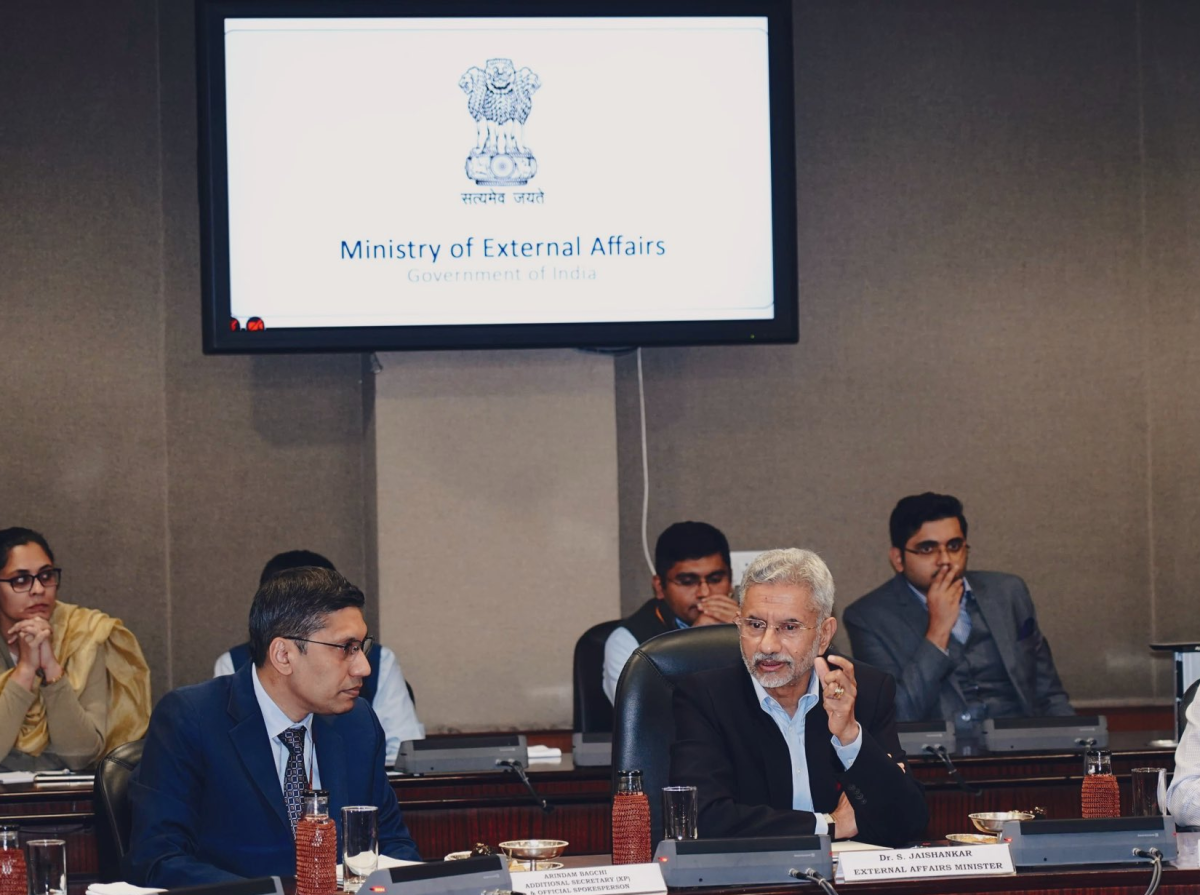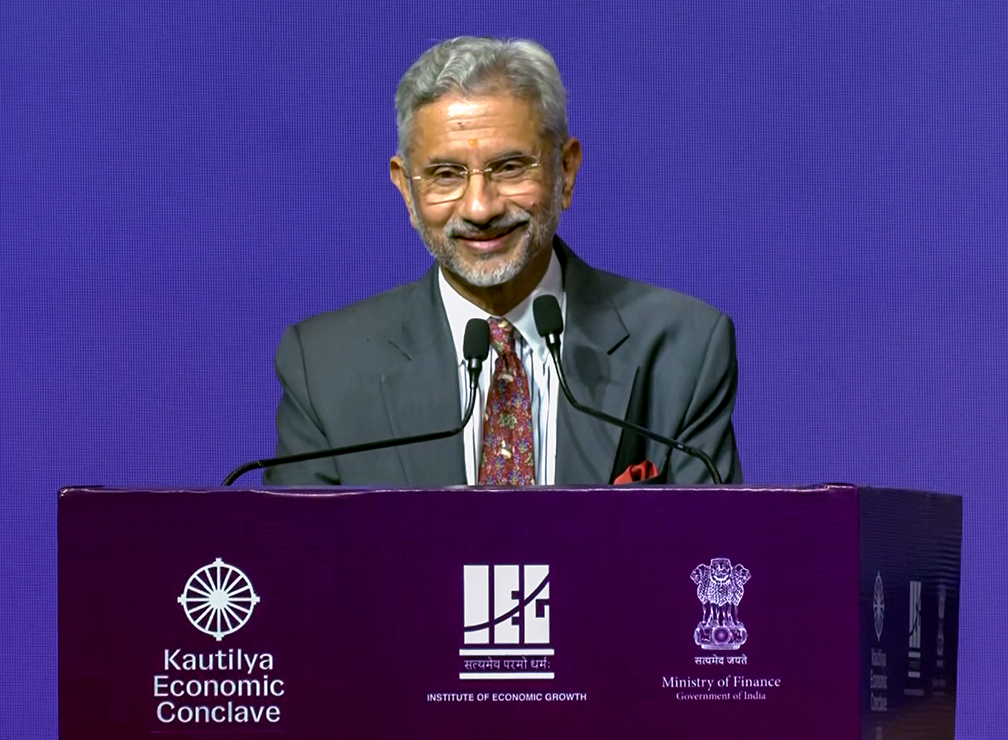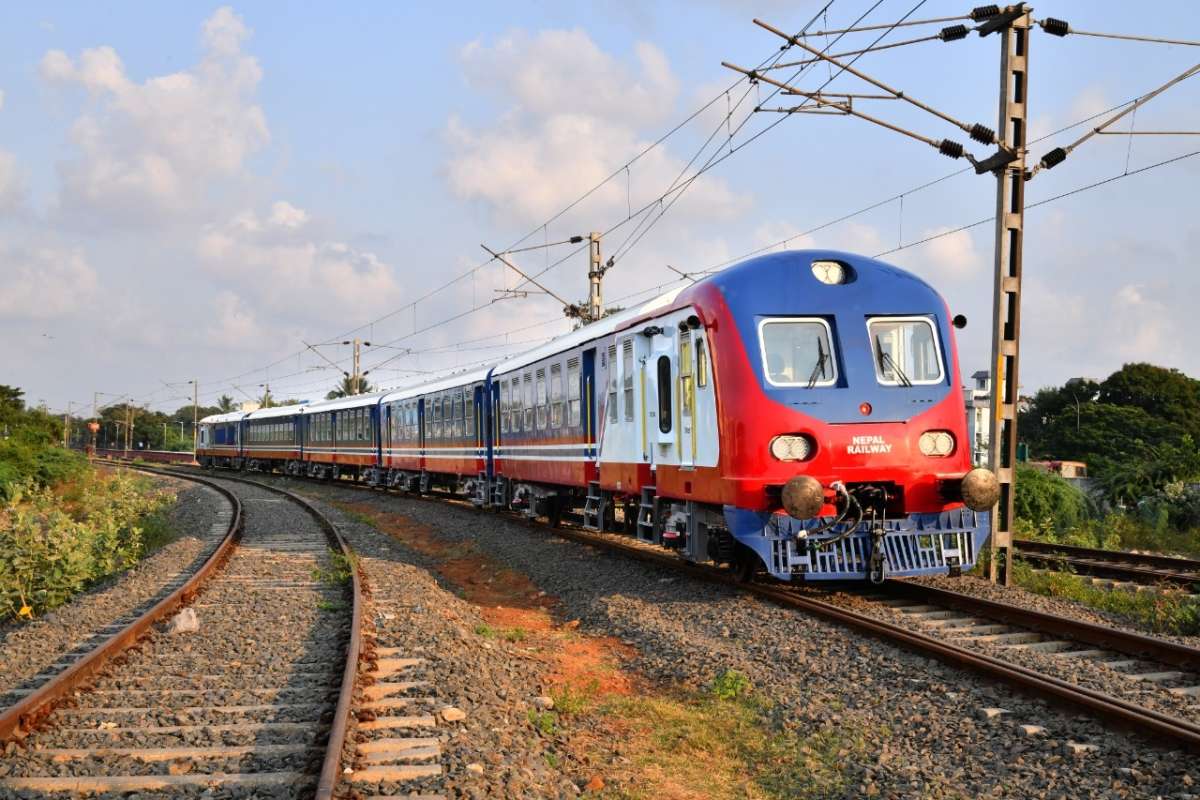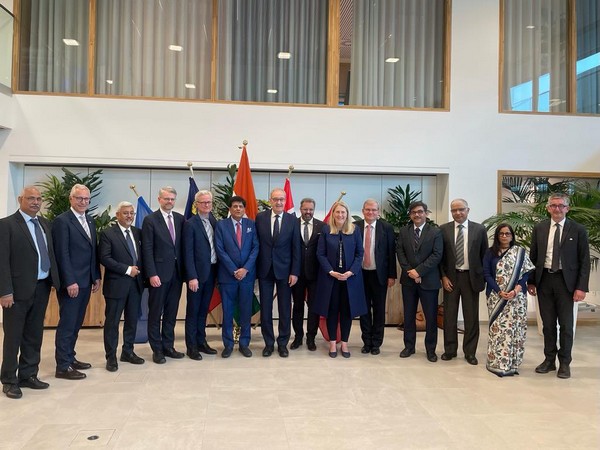At last year’s IEW, Modi had said India is committed to green energy but it would need investments in the traditional oil and gas sector…reports Asian Lite News
India will invest $67 billion in the gas sector over the next 5-6 years as part of an “unprecedented amount” of funds being put in to develop energy infrastructure, said Prime Minister Narendra Modi on Tuesday.
Speaking at the second edition of the India Energy Week (IEW) in Betul in South Goa, Modi said India is attracting global investors in the energy sector. “We want to increase the share of natural gas in the primary energy mix to 15 per cent from the current 6 per cent. Therefore, we are investing $67 billion in the next 5-6 years,” he said.
“India is investing an unprecedented amount of funds into India. Therefore, those involved in the global energy sector today want to invest in India in energry,” Modi said.
At last year’s IEW, Modi had said India is committed to green energy but it would need investments in the traditional oil and gas sector.
The Interim Budget on February 1 proposed a capital expenditure of Rs 11 trillion and a large part of that money will dovetail with investments in the energy sector. “India is now the fastest growing economy globally. The International Monetary Fund has predicted that it will continue to grow like this going forward. India will soon become the third largest economy in the world,” said Modi, adding the country will soon become a key producer and exporter of hydrogen.
“India is already one of the largest refiners in the world. Today, our refining capacity is more than 255 million metric tonnes per annum (MMTPA). By 2030, we want to expand that to 450 MMTPA,” Modi said. India annually consumes 19 million barrels of oil and the number is set to reach 38 million barrels by 2045.
“Ten years back, ethanol blending in petrol was 1.5 percent. In 2023, this was more than 12 percent. As a result, 42 million metric tonne of carbon emissions have been averted,” Modi said. E20 fuel (20 per cent ethanol blending in gasoline) was launched at IEW 2023 and is now available at 9000 outlets countrywide. E20 will lead to an estimated Rs 50,000 crore of savings for the government as crude oil imports reduce.
India seeks stronger energy ties with US
In the midst of geopolitical turbulence sparked by the Ukraine war, India has underscored the importance of its energy partnership with the United States, citing its strategic purchases of Russian oil as a stabilizing force in global crude markets.
According to S&P Global Commodity Insights, Assistant Secretary of State for Energy Resources Geoffrey R. Pyatt revealed that discussions between US officials and India’s Petroleum Minister Hardeep Singh Puri highlighted India’s perspective on the matter during a recent online interaction with the media.
Pyatt emphasized that India’s significant procurement of Russian oil served the dual purpose of curbing global crude prices and ensuring affordable fuel for its citizens.
“On Russian oil, this was a big part of my conversation with Minister Puri. We both agreed – and I said the same thing at much greater length on my visit to India last year. India has played a key role in our effort to stabilize global energy markets in the face of the extraordinary destabilization caused by Vladimir Putin’s brutal invasion of Ukraine and the weaponization of his oil and gas resources,” Pyatt stated, echoing sentiments shared during his previous visit to India.
Petronet, Qatar Energy sign long-term LNG contract
A long-term contract for LNG Sale and Purchase Agreement was signed on Tuesday between India’s state-run oil and gas company ‘Petronet LNG’ and Qatar’s ‘Qatar Energy’.
The agreement was signed between Union Petroleum Minister Hardeep Singh Puri and Qatar Minister of State for Energy Affairs and CEO of Qatar Energy, Saad Sherida Al-Kaabi.
The agreement will facilitate the purchase of around 7.5 Million Metric Tonnes per Annum (MMTPA) of LNG between the two companies.
Union Minister Puri said the contract will provide momentum to India’s journey towards energy self-sufficiency as it aims to increase the share of gas in energy mix from 6 per cent to 15 per cent by 2030.
“I was very happy to join HE Saad Sherida Al-Kaabi, Minister of State for Energy Affairs, Deputy Chairman and President & CEO @qatarenergy for the signing of a long-term contract for LNG Sale & Purchase Agreement (LNG SPA) for purchase of around 7.5 MMTPA LNG between @PetronetLNGLtd & QatarEnergy today,” Puri posted from his official X handle.
He added, “This contract will provide momentum to India’s journey towards energy self-sufficiency under the farsighted leadership of PM@narendramodiJi as India is transitioning into a gas-based economy by increasing the share of gas in energy mix from 6% to 15% by 2030.”
After signing the agreement, the Union Minister said India is looking around the world for collaborations and partnerships in the energy sector.
“Across sectors, we are exploring energy equations, exploration and production. Prime Minister Narendra Modi opened 1 million sq km of no-go area that will take our sedimentary basin under exploration from 8-9 per cent to 15 per cent. We are looking around the world for collaborations and partnerships,” Puri told reporters.
Qatar MoS Al-Kaabi said India has a lot of potential for green energy especially under PM Modi’s plan of enhancing infrastructure.
ALSO READ-BRICS members call for greater global uptake in renewable energy

